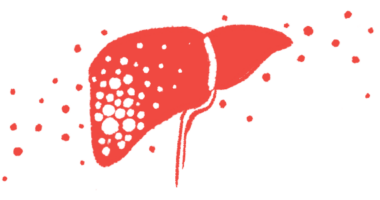Kaftrio success leaves some CF patients feeling forgotten
Adults not eligible for approved therapy report conflicting emotions

Adults with cystic fibrosis (CF) who are not eligible for Kaftrio therapy reported feeling forgotten in both the media and research, with conflicting emotions about those who do benefit from the approved treatment, according to a new interview-based study by researchers in the U.K.
Study participants noted that they also felt a loss of hope when they realized they weren’t eligible for the treatment, and were certain their health would decline compared with those on Kaftrio (marketed as Trikafta in the U.S.).
Despite these findings, the respondents maintained positive emotions as a way of coping and believed that the introduction of Kaftrio had sparked hope for new therapies, the team noted.
“The findings suggest a need for improved communication, psychological and peer support, inclusive media representation and opportunities for active involvement in research and advocacy,” the researchers wrote. “Implementing these interventions may help this group feel seen and supported, even as the CF landscape continues to evolve.”
The study, “A qualitative exploration of the experiences of adults with cystic fibrosis unable to benefit from triple combination therapy,” was published in the Journal of Health Psychology by a research team from Cardiff University in Wales.
Kaftrio, first approved in Europe in 2020, is a CFTR modulator designed to correct the defects in the CFTR protein, which is the underlying cause of CF. It’s approved for patients with specific genetic mutations. Among its reported benefits, the therapy improves lung function, eases digestive symptoms, and boosts nutritional status.
‘The 10%’: Certain patients aren’t eligible for Kaftrio or can’t access it
However, the number of CF patients who do not benefit from Kaftrio is substantial, either due to mutations that aren’t amenable to the therapy, an intolerance to the drug, or limited access due to high costs or geographic restrictions. Age restrictions also limit Kaftrio’s use, particularly for patients younger than 2 in the U.S., the U.K., and the European Union.
Still, little research has been done on the experiences of these patients, the team noted.
“Understanding how people with CF who are not able to benefit from [Kaftrio] re-interpret and find meaning in their situation, remains an important area for further investigation,” the researchers wrote.
To that end, the team conducted interviews with seven adults — four men and three women — with CF who were unable to benefit from Kaftrio due to genetic factors.
Four themes emerged from the interviews: feeling forgotten, conflicted emotions, fragility of hope, and remaining on the old CF trajectory.
The researchers noted that the release of Kaftrio in Europe garnered significant coverage on TV and social media. This prompted four participants to compare themselves with those who could benefit from Kaftrio — leading to feelings of being forgotten and a sense of missing out.
“When the ‘this changed my life’ stories came into social media at the same time that I started being ill, I just felt like it’s something I didn’t want to hear about,” said a participant named Jamie. “So I blocked certain keywords on all of my profiles. Anything to do with [CF] or Kaftrio.”
Four participants also reported feeling forgotten in discussions about future research. These individuals felt like research efforts would not focus on a minority group, and saw themselves as unworthy or a poor investment in research.
Supportive relationships with healthcare providers only go so far
While all participants reported having supportive relationships with healthcare providers, not all interactions were positive. Some of those interviewed conveyed feelings of being forgotten, frustrated, and disappointed due to insufficient information, insensitivity, and a lack of commitment from healthcare providers.
“I’ll do anything that helps you know people like me, but … from the other side, from the [National Health Service], from the medical professionals [there’s] just not seeing the same [effort]. That’s just heartbreaking you know,” said a participant named Sam.
Conflicting emotions arose when participants compared their situation to those who can benefit from Kaftrio, highlighting a desire for something they cannot have. This triggered feelings of jealousy, alongside excitement and happiness for those able to take the medication.
“When I found out it wouldn’t work, it was just sort of …felt like another setback in a way … but obviously it’s mixed with feelings of incredible excitement for those who could benefit,” said a patient named Bailey. “But I obviously, selfishly wanted to be able to benefit as well.”
Still, two participants conveyed only positive emotions regarding the benefits of Kaftrio for others.
“I’ve got friends who have a child with CF, who has the Kaftrio drug, and they’ve said it’s life-changing for them, which is great at the end of the day,” said Frankie, another respondent.
Under the theme of the fragility of hope, five participants who initially harbored that feeling upon Kaftrio’s release, thinking they could benefit, discovered that their rare mutations extinguished that feeling.
“I feel like nothing ever really seems to happen or to work. And then finally, this thing did work,” Bailey said. “But then of course, there’s a catch. And it didn’t work for me. And I just sort of felt like, oh, this is so typical.”
Participants say new drugs have sparked hope for future treatments
Although participants experienced a loss of hope, they also shared the belief that the introduction of Kaftrio might push scientists farther along the path to new treatments.
“I thought, you know, the fact that we have this [one treatment], I was optimistic to some extent that we have been able to research this, this miracle of a drug and going forward, we might even come up with something that does help people with rare mutations,” Sam said.
A notable aspect of the experience shared by these CF patients was the feeling that they remained on the old course of CF disease progression, certain their health would decline compared with those on Kaftrio.
“Like it’s really cruel timing in the way it’s worked out that the majority of people with CF are now having a better life and CF isn’t affecting them as much as it was,” Jamie said. “At the same time the exact opposite happened to me.”
[Participants’] accounts highlight the profound impact of not benefitting from [Kaftrio], particularly feeling forgotten and undervalued, yet holding on to hope. … Understanding these perspectives can guide the development of more inclusive and effective support systems and treatments.
Distraction and maintaining positive emotions emerged as a common way of coping for several of thefal participants.
“I just sort of shake myself and just sort of think … there’s always people that I’m close to that unfortunately … that are struggling more and I think just put it into context where you are, you know and if you’re not well … do something proactive,” a patient named Alex said.
Overall, according to the researchers, the participants demonstrated empathy and care for others, and they took proactive steps to enhance their health and well-being. The team found that these individuals felt in control of their lives and sought happiness in the present moment. Even with health problems, they appreciate life and choose to stay positive as a means of coping with their challenges.
“I’ve moved on from [Kaftrio] totally because I know it’s something that I can’t take,” Frankie said. “You know, there’s no point, once again, there’s no point dwelling on it.”
The research team said these interviews “hold significant value for [healthcare providers], therapists, researchers, pharmaceutical companies and government organisations” in terms of understanding the patient experience.
“[These] participants’ accounts highlight the profound impact of not benefitting from [Kaftrio], particularly feeling forgotten and undervalued, yet holding on to hope,” the researchers concluded, noting that “understanding these perspectives can guide the development of more inclusive and effective support systems and treatments” for all patients.










